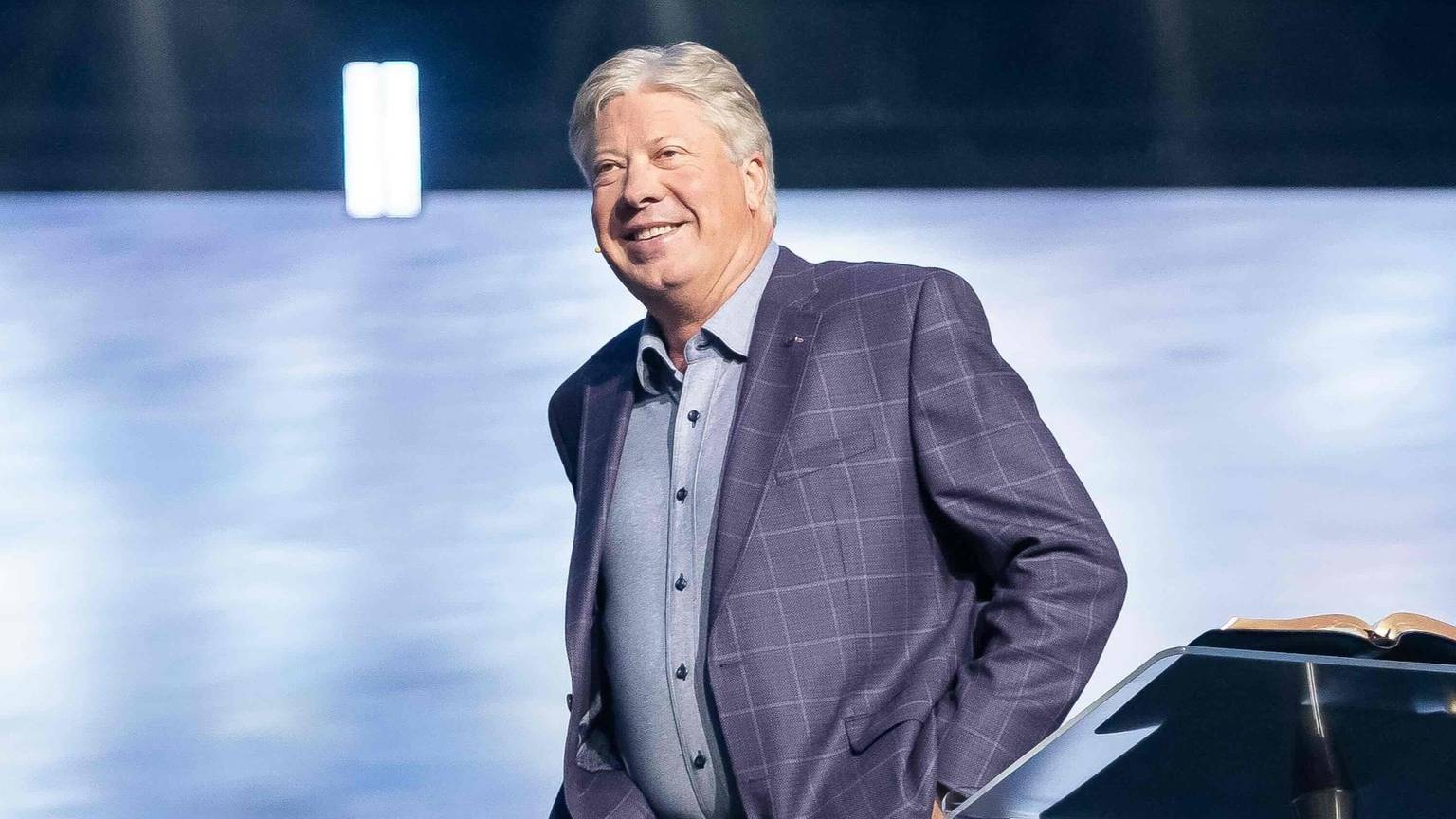How should white evangelicals think about slavery and past evangelical heroes who affirmed its practice? A new book by historian Sean McGever, Ownership: The Evangelical Legacy of Slavery in Edwards, Wesley, and Whitefield, helps us process these matters with historical accuracy and Christlike humility.
For many white American evangelicals, the issue of slavery is not much of an “issue” at all. After all, we live in a day where every country in the world outlaws the practice (at least on paper). We are rightly repulsed by practices reminiscent of slave ownership, like human trafficking and sweat shops. And we celebrate past evangelical leaders, like William Wilberforce, who tirelessly campaigned against the institution. Our denominations no longer split over slave ownership as they did prior to the American Civil War. Slavery, we thankfully conclude, lies in the rearview mirror of history.
Without denying the truth in these claims, there are two problems with this assessment. First, slavery, broadly construed, is still a live issue for a significant number of Americans, many of whom are believers in Christ. Just like Jews and Muslims carry with them a historical sense—a “communal memory,” if you will—of atrocities done to their ancestors by Christians (like pogroms and the Crusades), many Black Americans carry a remembrance of their ancestors’ subjection to slavery, segregation, and other forms of injustice. Consequently, they experience slavery and its aftereffects as painfully present realities.
Second, many of our white evangelical heroes have a complex relationship with slavery, a fact that can complicate our contemporary witness. What are white evangelicals saying when we honor such historical figures as towering exemplars of Christlikeness while treating their slave ownership (if we mention it at all!) as a minor character blemish, something “everybody was doing” at the time?
In Ownership, McGever helps readers confront these issues by examining the ministries of Jonathan Edwards (1703–1758), John Wesley (1703–1791), and George Whitefield (1714–1770), three 18th-century figures who are arguably the founding fathers of modern evangelicalism. Each affirmed the institution of slavery at some point in their lives, yet only one (Wesley) came to change his mind on the subject.
Working within the system
Ownership is divided into four sections. The first takes up the influences, regarding slavery and its place in the world, that Edwards, Wesley, and Whitefield inherited. The second examines how each was involved with the institution. The third considers how Wesley came to oppose slavery and his actions against it. And the fourth reckons with the legacies of each leader in light of their relationships to slavery.
The book gives introductory biographies of each man before launching into two informative chapters that provide historical context: one on the history of slavery, and one surveying English and Puritan views on the subject. Here, McGever describes the attitude that prevailed in much of Christianity until the 1700s. As he puts it, “Slavery existed in the world as a result of sin and evil, and … the best course of action was to work within that system.”
Edwards, Wesley, and Whitefield naturally adopted this outlook. In their ministerial training, as they studied the consensus found in English and Puritan writers on slavery, they likely absorbed the following lessons: White Christians must avoid the improper acquisition of slaves (“man-stealing” is forbidden, but enslaving prisoners of war or the offspring of slaves is allowable); the slave relationship must be guided by Christian virtue (slaves are to be obedient, masters temperate); and slaves should be evangelized, but conversion does not imply emancipation.
This framework had centuries of the Western Christian tradition preceding it. It was thus quite natural, as each man engaged the surrounding socioeconomic world, for them to participate in slavery to varying degrees.
Edwards ministered in colonial Massachusetts and is known as America’s foremost evangelical theologian. Several of his disciples (including one of his sons, Jonathan Jr.) were known for their strong stances against slavery, which they derived from Edwards’s ethical writings. Yet Edwards himself failed to fully appreciate the antislavery implications nascent in his own works.
Consider that he and his wife, Sarah, enslaved numerous Black Africans, including Venus, a 14-year-old girl they purchased in 1731, and Titus, a 3-year-old boy purchased in 1756. While manumission was an option for handling one’s estate in those days—Sarah’s mother, for instance, arranged to free her slaves upon her death in 1740—the Edwardses did not choose this for young Titus, who was passed on to their eldest son Timothy after their deaths in 1758.
In essence, then, Edwards’s relationship with slavery followed the cultural norms of the day. While his writings led many to oppose slavery in the decades after his death, his example did not live up to his ideals.
Whitefield’s example is even more unsettling. Early in his North American ministry, the famous evangelist stopped short of fully supporting legalized slavery in Georgia, where it had been outlawed since the colony’s founding in 1733.
Whitefield oversaw an orphanage in Savannah named Bethesda (“house of mercy”). Bethesda was one of the central ministries of his life, but the harsh economic realities of sustaining it led him to reconsider slavery, viewing it as an option for addressing financial woes at the orphanage. In time, he came to believe that Black slaves were better suited to work amid hot Georgia summers than white indentured servants, who were far more expensive to employ.
Following a kind of anti-Wilberforce trajectory, Whitefield soon became a prominent proslavery lobbyist both in Georgia and England, campaigning for a decade until the colony legalized slavery in 1751. By his death in 1770, he owned 49 slaves, all associated with his orphanage. Though Whitefield was an outstanding evangelist, McGever reveals that he was a short-sighted businessman whose mishandling compelled him to rely upon slave labor so that his “beloved Bethesda” could survive.
Of the three men, John Wesley’s relationship to slavery was the most distinct, and McGever devotes significant attention to his long and slow awakening. Wesley had no exposure to slavery until he visited the Southern colonies in the mid-1730s. There, he and his brother Charles learned of the harsh brutalities committed by some slave owners.
Wesley’s response, however, was not to call for social change but to double down on commitments to evangelize enslaved people. For almost 40 years, as he led the Methodist movement back in England, he wrote nothing on the subject. As McGever suggests, this silence reveals a major blind spot in his social conscience.
Yet Wesley had a gift that neither Edwards nor Whitefield enjoyed: long life. (The latter pair both died in their mid-50s.) When Wesley was almost 70, he began seriously reading antislavery works, and over the next two decades his views changed. He first opposed all forms of slave acquisition and called for slave traders to immediately quit their jobs. In his mid-80s, he came to champion full emancipation.
Though we should be grateful that one of our evangelical founding fathers made the journey to antislavery views, it is stunning to note that it took him 50 years to complete the process, a testimony to the fact that sinful cultural norms are extremely difficult to eradicate from society.
Their blind spots, and ours
McGever excels at narrating the history of Edwards, Whitefield, and Wesley with an irenic tone. While he is clear that their proslavery actions are contemptable, he issues no fiery condemnations. Instead, we come to the humble realization that they were deeply flawed Christians like the rest of us. They may have ascended to the heights of theological acuity, sanctified holiness, and evangelical proclamation, but they did so as individuals who also participated in a system fraught with moral conundrums and evil. They are, in a sense, failed heroes, and we should acknowledge this complexity while telling their stories.
Ultimately, Ownership gives readers a profound historical sense, a recognition that, even among the best of us, social and cultural conventions shape believers in ways that future generations might find troubling. When history is written this way, we naturally ask ourselves, “What are my ethical blind spots, and those of my church and tribe?”
In the last chapter, McGever leads readers in an exercise of self-reflection patterned after the book’s fourfold framework: Have we inherited cultural influences that are biblically and ethically problematic? How are we letting these influences shape our thoughts and behaviors? What actions can we take to love others in more Christlike ways? What kind of legacy do we seek to leave for posterity?
While applying history in this manner is not without its pitfalls, McGever recognizes that humble self-examination, inspired by failed heroes, is a beneficial exercise for individual Christians and for the church at large. Sinful hearts are infinitely resourceful, and sinful patterns are remarkably resistant to change. The lessons of McGever’s book should aid the church as it pursues the Reformation emphasis of semper reformanda, “always reforming” according to the Word of God.
Robert W. Caldwell III is professor of church history at Southwestern Baptist Theological Seminary. He is the author of Theologies of the American Revivalists: From Whitefield to Finney.














































